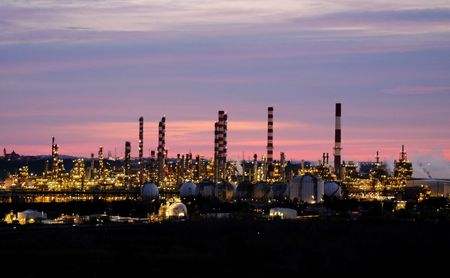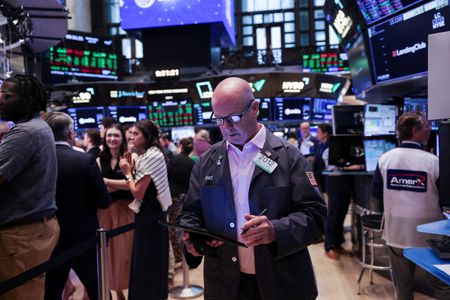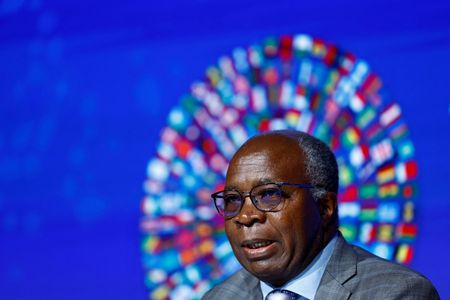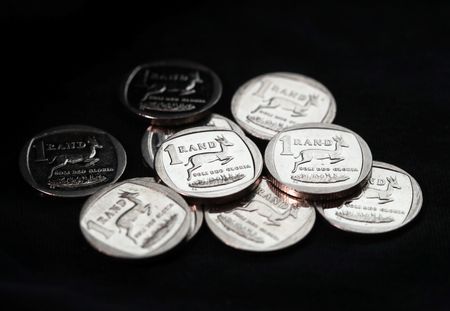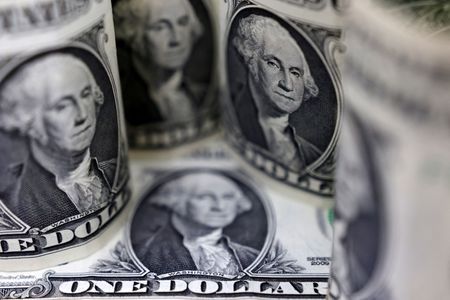By Nicole Jao
NEW YORK (Reuters) -Oil prices edged lower on Tuesday as rising OPEC+ supply and worries of weaker global demand countered concern about U.S. President Donald Trump’s threats to India over its Russian oil purchases.
Brent crude futures were down 58 cents, or 0.84%, to $68.18 a barrel at 12:17 p.m. EDT (1617 GMT), while U.S. West Texas Intermediate crude slipped 59 cents, or 0.89%, to $65.7. Both contracts fell by more than 1% on Monday to settle at their lowest levels in a week.
The Organization of the Petroleum Exporting Countries and its allies, together known as OPEC+, agreed on Sunday to raise oil production by 547,000 barrels per day for September, a move that will end its most recent output cut earlier than planned.
“The significant increase in OPEC supplies is weighing on the market,” said Andrew Lipow, president of Lipow Oil Associates. “The market now is going to see if India and China agree to substantially reduce the purchases of Russian crude oil, thereby looking for alternative supplies elsewhere.”
Trump on Tuesday again threatened higher tariffs on Indian goods over the country’s Russian oil purchases over the next 24 hours. Trump also said declining energy prices could pressure Russian President Vladimir Putin to halt the war in Ukraine. New Delhi called Trump’s threat “unjustified” and vowed to protect its economic interests, deepening a trade rift between the two countries.
Oil’s move since Trump’s threat indicates that traders are sceptical of a supply disruption happening, John Evans of oil broker PVM said in a report. He questioned whether Trump would risk higher oil prices.
“I’d call it a stable market for oil,” said Giovanni Staunovo, an analyst at UBS. “Assume this likely continues until we figure out what the U.S. president announces in respect to Russia later this week and how those buyers would react.”
India is the biggest buyer of seaborne crude from Russia, importing about 1.75 million bpd from January to June this year, up 1% from a year ago, according to data provided to Reuters by trade sources.
There are renewed concerns about global oil demand, with some analysts expecting faltering economic growth in the second half of this year.
(Additional reporting by Enes Tunagur and Alex Lawler in London, Anjana Anil in Bengaluru and Siyi Liu in Singapore; Editing by Mark Potter, Louise Heavens and Paul Simao)

